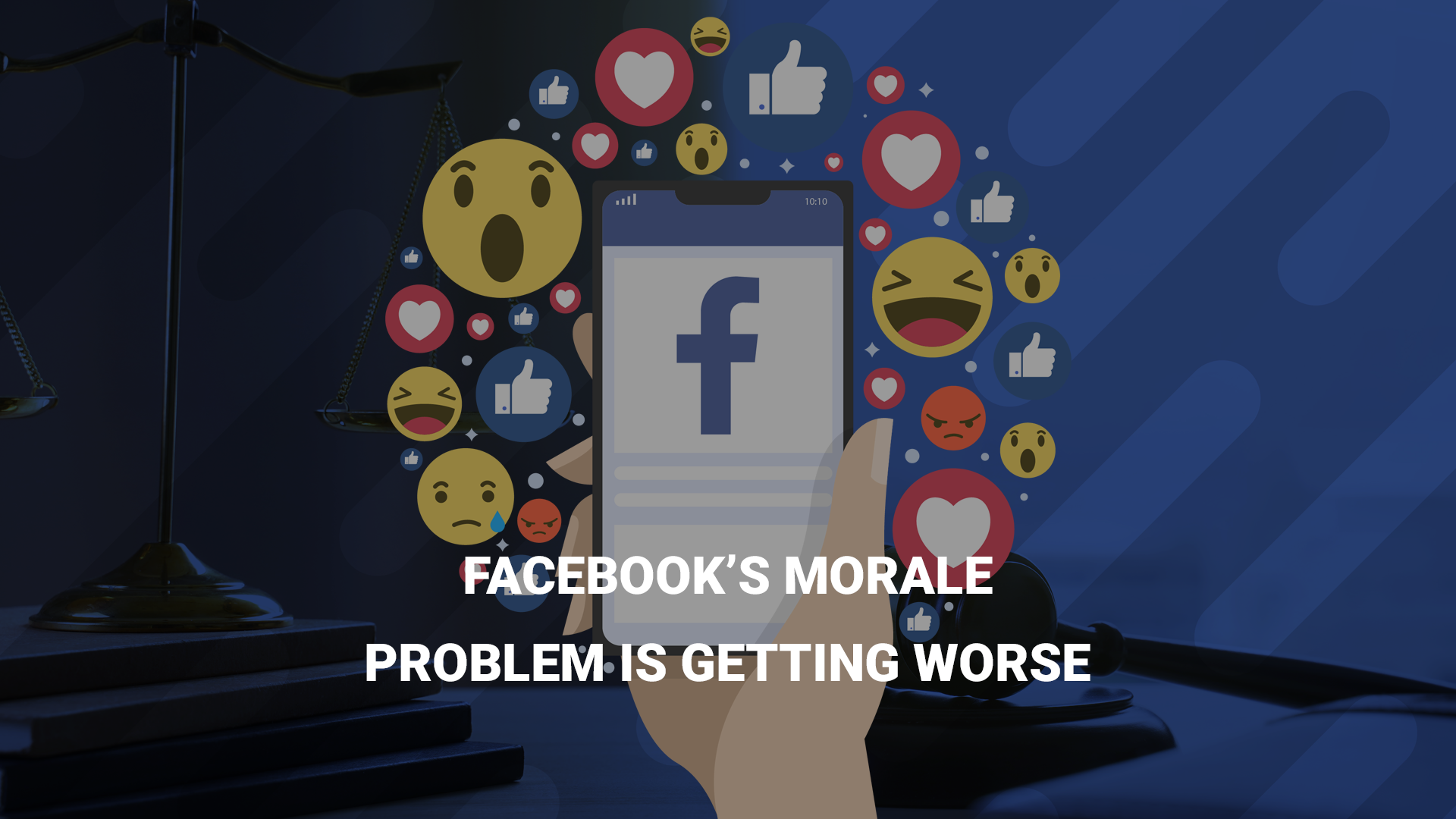Facebook’s recent crisis is just one of many privacy issues that the company has had to deal with in its relatively short existence. With recent concerns coming to light about data privacy and social media, it’s more important than ever to be transparent about your company’s privacy protection for customers.
At SkyFlok we do not compromise the privacy and security of your files or your customer’s data. SkyFlok is an encrypted, multi-site file sharing and cloud storage service that puts you in control of your data privacy and where you place your data.
Our innovative cloud storage technology distributes your files across multiple providers and locations to make sure it remains encrypted and private, even if individual providers might be compromised. No single provider has enough information to compromise your privacy.
Early on Wednesday, the United Kingdom Parliament released a 250-page trove of documents from a US lawsuit against Facebook. The trove has a colorful history, having been obtained in a hotel-room raid on a visiting businessman that may or may not have been coordinated by a crusading anti-Facebook journalist, who has stubbornly refused to comment on the matter. Facebook attempted to block the documents’ release, but British lawmaker Damien Collins argued that they are in the public interest and posted them online.
What did we learn from the document dump? I group the findings into two big buckets. The first concerns data privacy; the second is about competition. Let’s look at them in order.
Data privacy is at the root of the legal case that ushered these documents into the spotlight. Six4Three, a developer of a fairly gross app that sorted through your Facebook friends’ photos to find pictures of them in their swimsuits, sued Facebook after the company cut off access to its API in 2015. (This was the same API, by the way, that Cambridge Analytica used to illicitly obtain personal information about 87 million people.) The API had been created in response to public pressure on Facebook to share more of its data with outside developers, but enough developers behaved badly enough that shutting down the API was widely seen as a good thing.
The discovery process in the Six4Three legal lawsuit generated the 250 pages that journalists spent today reading. Taken together, the documents help capture a time when the company was considering how to manage and monetize access to the data it collects.
As had previously been reported by the Wall Street Journal, some executives did consider selling access to user data, ultimately opting against it. The documents also lay out the degree to which Facebook made special deals with some developers to preserve their access to data after it became more restricted. I can understand why Facebook made these deals — it trusted some companies more than others, often because executives had personal relationships with their counterparts at companies like Lyft. But average users had little say in how access to their data was meted out, and very few of these discussions were public as they were being had.
More than anything else, the documents illustrate the degree to which data collection is a strategy for growth as much as it is a strategy for making money. Growth has always been Facebook’s prime directive — much more important in the short and medium term than generating revenue — and data fueled it.
How else to explain the way Facebook evaluated the privacy risks inherent in collecting SMS and call records from Android users to improve the News Feed algorithm and the People You May Know feature, which suggests friends to users? Russell Brandom breaks down the relevant documents here:
Initially, the feature was intended to require users to opt in, typically through an in-app pop-up dialog box. But as developers looked for ways to get users signed up, it became clear that Android’s data permissions could be manipulated to automatically enroll users if the new feature was deployed in a certain way.
In another email chain, the group developing the feature seems to see the Android permissions screen as a point of unnecessary friction, to be avoided if possible. When testing revealed that call logs could be collected without a permissions dialog, that option seems to have been obviously preferable to developers.
”This is a pretty high-risk thing to do from a PR perspective,” an employee at the time acknowledged, “but it appears the growth team will charge ahead and do it.” Indeed it did.
The privacy-related issues are interesting to a point, but in another sense the privacy fight is mostly over. Europe enacted the General Data Protection Regulation; California passed a similar privacy bill; and most people expect that a new federal privacy law, which would supersede California’s, will be passed before it takes effect in 2020. That’s not to say there won’t be more fines; or more investigations; but it’s unlikely to amount to much more than a series of speeding tickets.
More compelling, to my mind, are the documents’ implications for a potential antitrust case around competition issues. First, there’s the email in which Mark Zuckerberg personally approves of a move to cut off the video-sharing app Vine’s ability to see which of their Facebook friends use the app. Here’s Adi Robertson:
According to documents released today by the UK Parliament, Facebook executive Justin Osofsky proposed the move on January 24th, the same day the app appeared on iOS.
“Twitter launched Vine today, which lets you shoot multiple short video segments to make one single, 6-second video,” Osofsky wrote. “Unless anyone raises objections, we will shut down their friends API access today.”
“Yup, go for it,” replied Zuckerberg, according to the documents.
The Verge reached out to Vine co-founder Dom Hofmann about the news. Hofmann said that Vine had anticipated the move, given the rocky relationship between Facebook and Twitter, which had acquired Vine before its official launch.
”I suppose if we had launched independently we might have been able to get away with it for a little bit longer, but it seems like Facebook has always been pretty quick to disable that part of their api for anything they perceive as competition,” Hofmann told my colleague Julia Alexander. “My general feeling on that policy is that it’s pretty crummy and not at all aligned with what any user would want.”
The documents also reflect how the company’s 2013 acquisition of mobile analytics company Onavo gave it a highly early-warning system for competitive threats. In BuzzFeed, Charlie Warzel and Ryan Mac lay out charts from the document cache showing how a then-independent WhatsApp was crushing Facebook Messenger in adoption rates around the world:
More importantly, though, Onavo data from April 2013 showed that WhatsApp was heavily outpacing Facebook Messenger on mobile in certain areas. Another newly released confidential chart shows that WhatsApp was sending 8.2 billion messages a day compared to Facebook Messenger’s (on mobile) 3.5 billion.
Facebook later bought WhatsApp for $19 billion, to a collective shrug from regulators.
In anticipation of the documents’ release, Facebook announced it would once again open up its API to the kind of find-your-Facebook-friends features that it once blocked in apps like Vine. On Wednesday, it followed up by issuing both a corporate blog post and a personal response from Zuckerberg.
The former says that the documents present only one side of the Pikini lawsuits. That’s true, I suppose, although my two biggest takeaways — that Facebook routinely pursued growth at the expense of data privacy, and acted in anti-competitive fashion against apps it considered a threat —hardly seem to be in dispute.
Zuckerberg’s post is aimed mostly at the discussion around Facebook’s debate about whether to sell user data. “Like any organization, we had a lot of internal discussion and people raised different ideas,” he wrote. And that Facebook ultimately opted against doing so, and that so many people continues believe that it does do so, really captures what Facebook is up against in the court of public opinion.
Ultimately, these emails — like any ancient corporate emails — are best read with an eye toward dramatic irony. Consider this 2012 email from Zuckerberg pondering the risks of giving developers access to user data: “I think we leak info to developers, but I just can’t think if any instances where that data has leaked from developer to developer and caused a real issue for us,” he wrote. The real issue would come five years later, and it would make the then-fraught discussions about how best to monetize a mobile app look increasingly quaint.
Facebook morale declines
During the Cambridge Analytica scandal, I (and others) wrote that the immediate risk to Facebook was related to morale. If Facebook could no longer attract and retain the best workers, its ability to survive over the long term would be threatened.
On Monday, CNBC’s Sal Rodriguez reported on an uptick in Facebook employees asking their former colleagues about work elsewhere. The company told him that its retention rate remains “strong,” but two years of perma-crisis have taken their toll. (I quoted this in yesterday’s edition, but here it is again.)
Another former Facebook director said he has seen a rise in the number of his ex-colleagues who have reached out to ask about openings at his current company, and these employees often ask about advice on the best way to leave Facebook. He’s also experienced an increase in calls from other companies that are running references on current Facebook staffers.
”Once it becomes weird to tell people that they work at Facebook, or once their moms aren’t proud of them anymore, that’s when people are going to head to the exits,” he said. “I think we’re already getting there.”
This reporting builds on an earlier story from Deepa Seetharaman that reported on an internal survey in which the number of employees who said that Facebook is good for the world declined 19 percentage points in a year. Today, only a small majority of Facebook employees says the company is a net positive for the world.
In BuzzFeed today, Charlie Warzel and Ryan Mac add a bunch of good details to this narrative. Some executives inside Mark Zuckerberg’s inner circle complain that most of the past two years’ scandals are essentially inventions of a hostile media; others are calling for new leadership; still other employees are so paranoid about the company monitoring discussions that they are only doing so on burner phones. I found this last detail somewhat incredible, so I checked it with two former employees — who not only found it believable, but shared even more incredible stories about the lengths Facebook employees are going to to avoid being listened to, some of which I hope to share with you eventually.
In the meantime, BuzzFeed reports that the future of Sheryl Sandberg is the hottest discussion going on in Blind, an anonymous chat app that makes workers log in with their workplace emails. It’s about as productive as you would imagine an anonymous workplace discussion to be:
“I love Sheryl. Because Mark loves Sheryl. This is Mark’s company, not yours. He knows Sheryl better than you do and knows what this company needs better than you do. He gives you so much you get confused in your entitled ass that this is your company,” one user wrote. “I trust Mark. And if Mark drives the company into the ground it’s his company to drive into the ground. Go work somewhere else or go start your own company if you know so much better than him.”
Not all agree. “Funny, Hitler’s followers said something similar. We all know how that went,” one user replied.
In an effort to resolve the question about whether Sandberg should go, Facebook’s board today issued a statement of support over her handling of the George Soros issue. (She tried to apologize to Soros but he won’t call her back because he’s “traveling,” according to BuzzFeed.)
Despite the board’s action, it’s clear that Facebook morale is on the decline. In 2017, which was also a difficult year for many Facebook employees, the company still ranked as the best place to work in Glassdoor’s annual anonymous survey designed to gauge employee satisfaction. This year, it dropped to No. 7:
Glassdoor bases its ranking on eight factors, including work/life balance, senior management and compensation and benefits. On employee satisfaction alone, Facebook has seen a steeper decline, steadily falling from a 4.6 rating in Q1 to a 4.3 in Q4, according to Glassdoor community expert Scott Dobroski.
”Facebook employees talked about the ‘move fast’ culture sometimes moving too fast,” Dobroski said in an interview with CNBC. He noted that this is the first time Facebook has seen a decline in its award score since 2015. Facebook employees on Glassdoor said they wanted a more robust internal structure and transparency from the company’s leadership.
Externally, the release of Six4Three lawsuit documents got most of the attention today. But internally, it’s these stories that will linger.
Democracy
Here’s How Facebook’s Local News Algorithm Change Led To The Worst Riots Paris Has Seen In 50 Years
Ryan Broderick traces the rise of the Yellow Vest movement covered here on Monday:
So, in less than two weeks, what you end up with is this: A Change.org petition with fewer than 1,500 subscribers gets talked about on a local radio station. The radio appearance is written up by a local news site. The article is shared to a local Facebook page. Thanks to an algorithm change that is now emphasizing local discussion, the article dominates the conversation in a small town. Two men from the same suburb then turn the petition into a Facebook event. A duplicate petition goes viral within the local Facebook groups. Then a daily newspaper writes up the original petition. This second article about the petition also goes viral. So does the original petition. And then the rest of French media follows.
Ludosky’s petition now has over a million signatures.
Wayne Ma writes about a little-known partnership between Google and China over advertising — an act of corporate diplomacy intended to smooth the way for the return of other Google projects to China. (Facebook generates between $5 billion and $7 billion a year in advertising from China despite being banned there, according to the report.)
While everyone from Google employees to regulators debate whether Google should relaunch its censored Chinese search engine, the company is continuing to grow its advertising business in China with substantial help from local Chinese governments and Communist Party officials.
Jay Stanley writes about a program that would register the movements of “subjects of interest” in public places, China-style:
In yet another step toward the normalization of facial recognition as a blanket security measure, last week the Department of Homeland Security published details of a U.S. Secret Service plan to test the use of facial recognition in and around the White House.
According to the document, the Secret Service will test whether its system can identify certain volunteer staff members by scanning video feeds from existing cameras “from two separate locations on the White House Complex, and will include images of individuals passing by on public streets and parks adjacent to the White House Complex.” The ultimate goal seems to be to give the Secret Service the ability to track “subjects of interest” in public spaces.
Gerrit De Vynck writes about the movement inside Google to offer better protections and and temporary, vendor, and contract workers, known internally as TCVs. They also have a new letter up on Medium, posted on the account created for the Google walkout.
When a shooting happened at YouTube’s campus in San Bruno, California, in April, TVCs didn’t get some communications updating workers on the situation, which left them feeling unsafe, the TVCs said. A spokeswoman for Google said updates were sent to TVCs through their employers, and that they were invited to attend a town hall after the event with full-time staff.
The workers are often on teams with full-time employees and said their contributions are indistinguishable from the better-placed colleagues. One contractor, who works 50 to 60 hours a week in Google’s marketing division, said TVCs are treated as “collateral damage” who can be hired and fired on short notice to help the company achieve business goals quickly and cheaply.
Ankita Rao assesses the movement that is coalescing against Amazon’s plans to bring Regional Office 1 of 2 to New York:
NYC Councilman Jimmy Van Bramer was not happy when I asked how the largest city in the country should negotiate with the retail giant poised to enter his district. “I’m not interested in negotiating with Amazon right now—we’re looking to stop this,” he told me.
Just last year, Van Bramer joined dozens of other local politicians in signing a plea for Bezos to bring his company to New York City. They were hoping, he recalled, for the still-promised economic boost and thousands of new jobs. But when de Blasio and Cuomo announced they would push the project through the governor’s economic development agency, bypassing input from the city council, many of the same local officials were taken aback. “Knowing what we know what we know now, we regret having signed it,” Van Bramer told me.
Elsewhere
Rachel Becker surveys the research coming out of the Time Well Spent movement and finds that it’s all a muddle:
The actual research hasn’t come to one neat conclusion, and that may be because the field has relied on self-reports. It’s possible to measure how much time you spend on your phone; it’s just that most research — some 90 percent of it, estimates David Ellis, a lecturer in computational social science at Lancaster University — hasn’t. People are notoriously unreliable reporters of their own behavior: people misremember, forget, or fudge their responses to make themselves look better. We’ve seen it before with food diaries; we’re bad at remembering or even noticing how much we eat. Sometimes we lie to ourselves and, as a result, our food diaries, too. The unreliability of self-reports has been a major problem for nutrition research.
So it’s reasonable to worry that people aren’t accurately telling researchers how much time they’re spending on their phones. The latest strike against self-reports was published last month on the preprint server PsyArXiv, first reported by New Scientist. The study hasn’t been peer-reviewed yet, but it adds to a growing body of evidence that the foundation for smartphone scaremongering is shaky. “We have actually known for quite a while that when you ask someone to estimate their screen time, they’re really crummy at it,” says Andrew Przybylski, director of research at the Oxford Internet Institute. “We’re coming to a time when it’s easier for psychologists to know how crummy that measurement is.”
Lux Alptraum recalls the happy, early days of Tumblr’s embrace of erotica:
By January 2010, the Tumblr smut community was established enough to get official endorsement; that month, the site’s staff unveiled an officially sanctioned directory of erotic Tumblrs, which was listed alongside similar directories of Tumblrs devoted to art, fashion, photography, and food.
Back when Tumblr was a scrappy startup housed in the offices of Frederator Studios — the company behind Adventure Time — this sort of attitude made sense. Like many tech companies that built their business atop a mountain of user-generated content, Tumblr embraced a “business in the front, party in the back” model of presentation. Casual browsers — or corporate investors — could come to Tumblr and see a clean, friendly site that promoted creativity and connection, while savvy users knew that with the tiniest bit of digging they’d be able to uncover all the smut their heart desired.
Brian X. Chen recently learned the hard way that no one cares about his dog:
I turned to some obscure marketing blogs that suggested a simpler path: Buy some bots, otherwise known as fake followers, to make the account look more attractive to real people and to help expand an audience. I bought 2,500 bot followers and waited for the likes to pour in and the audience to swell.
To my surprise, Max became even less popular. His number of followers hemorrhaged, presumably because Instagram purged many of the phony accounts. The average number of likes on the posts dipped to about 45.
Launches
Facebook Messenger grew too bloated, forcing Facebook Messenger to release a “lite” version that used less data and would be more palatable to the developing world. But software being software, it has to have a product roadmap, which means adding features, and gradually approaching the level of bloat that led to its creation in the first place. Anyway, enjoy sending GIFs in Messenger Lite!
Takes
Zach Beauchamp says that kicking Yiannopoulos off Twitter and other platforms helped to contain the threat he posed. But:
What this episode shows is that under the right circumstances, the controversial no-platforming tactics — which range from activists noisily disrupting speeches to big tech corporations banning provocateurs from their platforms — really can work. There’s no evidence that Yiannopoulos’s no-platforming led to his ideas and personality gaining a kind of underground popularity, as some free speech advocates believe happens when speech is repressed. Instead, they simply went six feet under.
But before Milo’s critics celebrate too much, they should be aware of the flip side to all this: The same tactics that can be used to repress awful speech can be used against speech that’s just unpopular or threatening to people in power. Today, no-platforming may shut down speech you don’t like. Tomorrow, it might threaten speech you do.
Molly McHugh says that rank-and-file employees are the heroes of the current moment, which is true. Ask me for my Signal, employees!
It’s a tidal shift: Silicon Valley’s work environment is known for its perks—summer Fridays, ping-pong tables, free meals, and the like. Consequently, its employees are often regarded as happy, willing, and even docile. Which means it’s even more significant that an increasing number of them are willing to blow it all up in an attempt to change the course these corporations are on.
And finally …
Earlier this week I shared a tweet from Rudy Giuliani that, due to a missing space, inadvertently resolved into a URL. As I noted then, someone had bought the domain and put up a page that read, in its entirety, “Donald J. Trump is a traitor to our country.” You might have expected Giuliani, Trump’s former cybersecurity adviser, to take the L here. But as Emily Stewart explains in Vox ……….. he did not:
Twitter allowed someone to invade my text with a disgusting anti-President message. The same thing-period no space-occurred later and it didn’t happen. Don’t tell me they are not committed cardcarrying anti-Trumpers. Time Magazine also may fit that description. FAIRNESS PLEASE
“It didn’t happen” the second time Giuliani omitted a space after his period because the word after that period — “either” — is not a top-level domain.
But you already knew that.







